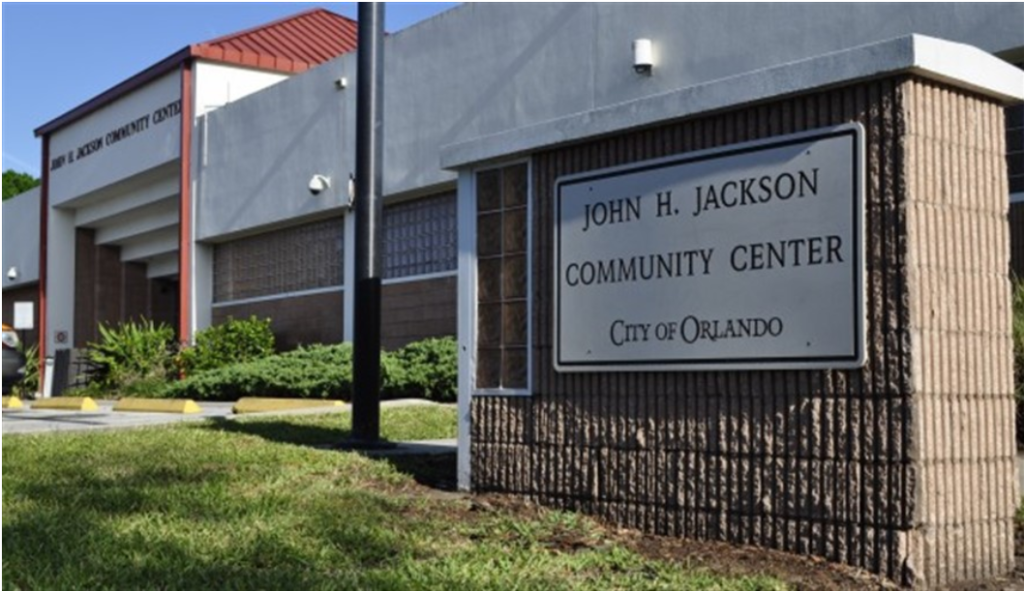
Lower-income children living in the shadow of Cinderella’s castle are reaping the benefits of personalized learning along with their more well-off classmates, thanks to some fairy godparents at city hall.
During late summer, as the first day of a new school year drew near, city of Orlando employees waved their magic wands and created learning pods at six neighborhood recreation centers to serve those without access to traditional pandemic pods and the trappings that come with them, such as private tutors.
“The city of Orlando is very dedicated and committed to closing the gap in learning between families who are well off and families who are not,” said Lisa Early, director of the city’s families, parks and recreation department.
Learning pods, which have sprung up across the country in response to the coronavirus pandemic, allow small groups of students to study under adult supervision. Families typically rotate pod duty or pay teachers to provide in-person instruction in homes or in rented spaces. One criticism of pods is that they favor families of privilege and shut out those without the means to engage, an issue Orlando officials sought to dismantle.
Their search for education solutions began when families who had been using city recreation centers over the summer began pleading for help. They heard from parents who said they were worried their children would become infected with COVID-19 if they returned to brick-and-mortar settings and possibly carry the virus to family members.
And while the Orange County School District offered an online program that allowed children to learn from home, it wasn’t a good solution for working parents who were reluctant to leave their children home alone.
“We have a very strong relationship with the families in our community,” Early said, explaining that the decision to create learning pods was parent-driven.
Around that time, pandemic pods became a national topic as large school districts outside Florida refused to open their campuses to in-person instruction amid teacher union protests about employee safety. As battles raged in those states, many families took matters into their own hands by hiring teachers to deliver in-person instruction to small groups of students.
Teachers benefited as well as families. Some reported making more money teaching in a pod than at their schools. Others who took a year off or retired to avoid exposure to COVID-19 found a new source of income and greater academic freedom in pod arrangements.
But the workaround only added to the ongoing debate about educational equity for families of modest means.
Early and her staff watched the conversation closely and decided to seek an alternative that would allow Orlando’s lower-income families to reap the benefit of learning pods. She and her staff drew up a plan and brought it to Orlando Mayor Buddy Dyer, who approved the $97,000 proposal. Orlando became one more city on the list of those coming to the rescue of economically disadvantaged, mostly minority families.
Unsure of what the demand would be, city staff publicized the program through the city’s summer camps, which Early said were among the few municipal programs around the state to be open during the pandemic. Staff decided to offer the pods at six recreation centers, with 18 students at each center. If sign-ups exceeded the number of available spaces, other centers could be added.
As it turned out, six locations were enough.
“We thought we would be overwhelmed with demand, and we weren’t,” Early said.
Three months later, the program is going strong. Students are dropped off and picked up outside the rec centers each weekday. They sit in assigned seats 6 feet apart, divided into two cohorts per rec center that meet in separate rooms. Groups are not allowed to intermingle, and masks are required.
Staff members assigned to each room assist with technology and help clarify a teacher’s instructions. Students bring their district-issued devices and use the center’s wi-fi to access their classes. A limited number of city computers are available on site for students who lack their own devices, and the city provides headphones for each student. High-touch areas get extra cleaning.
Best of all, the learning pods are free for those who qualify based on need while others pay a $5 fee per day for each child.
While a handful of COVID cases have been reported at the centers, infection has been well contained through federal safety protocol and robust contact tracing, Early said.
The city has yet to determine whether it will continue to offer the program during second semester. Early said the decision will hinge on whether Gov. Ron DeSantis shuts down district online programs and orders a full return to campus when the clock strikes midnight on Jan. 1. But at least for now, the learning pods appear to be for many families a glass slipper with a perfect fit.


